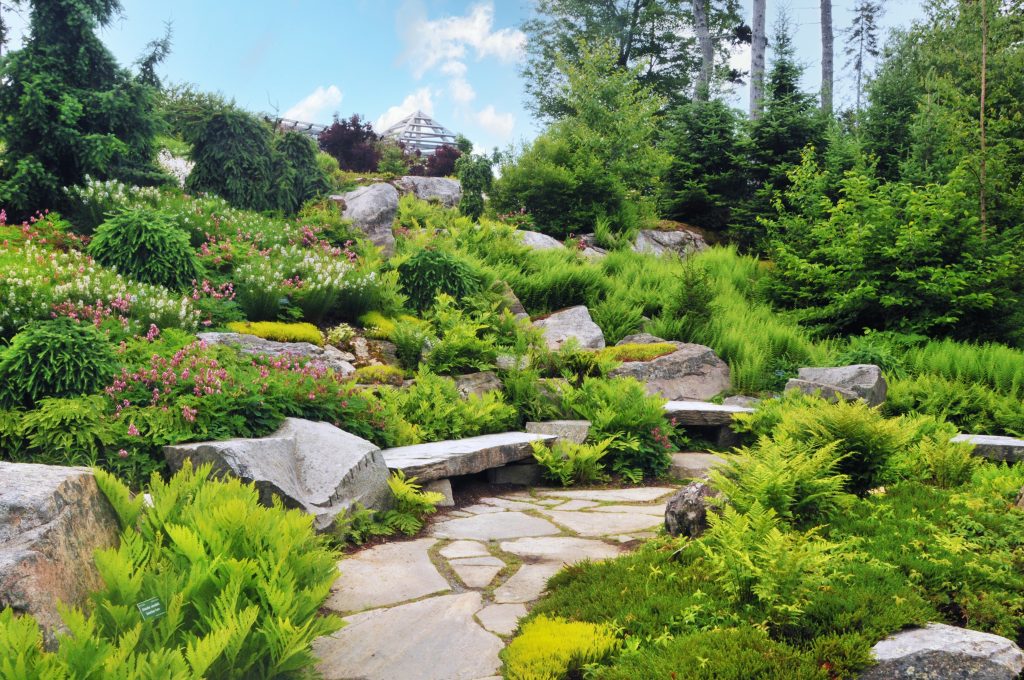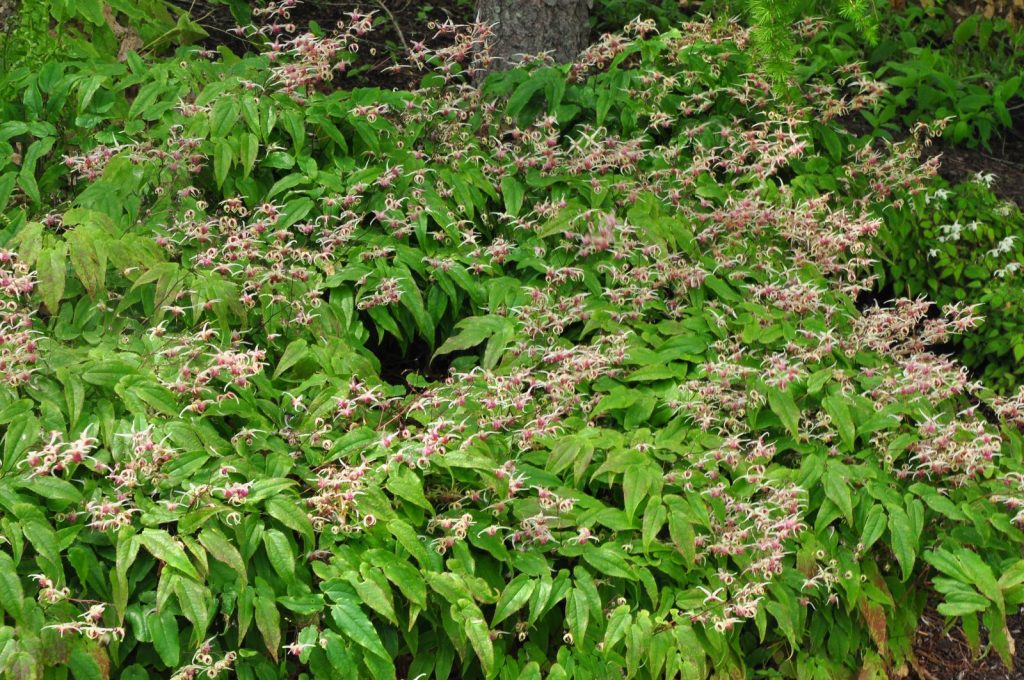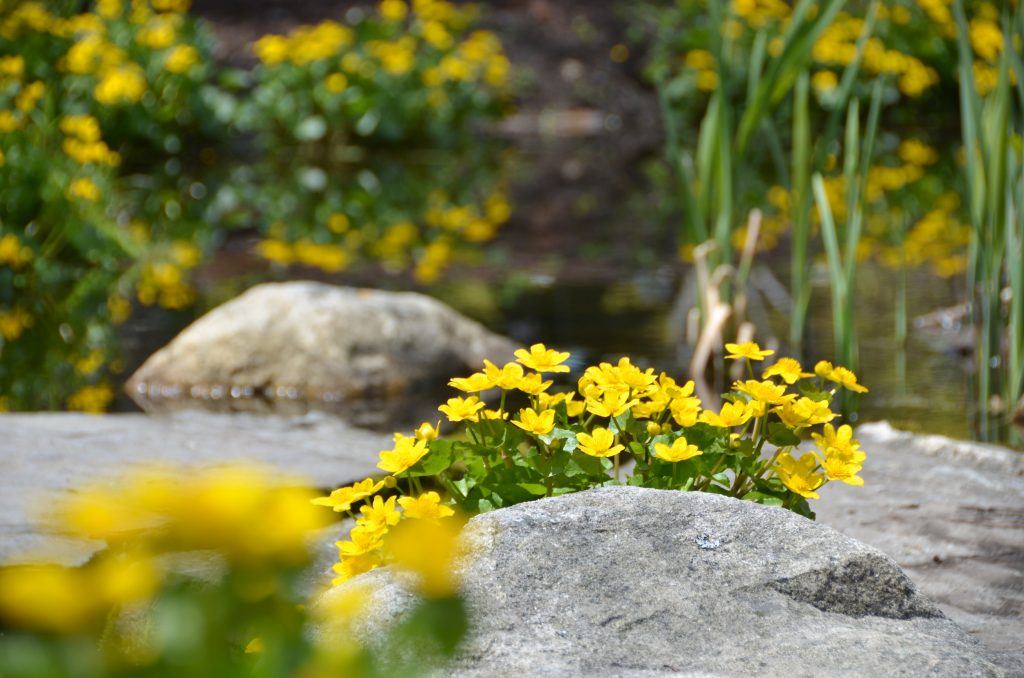Plant for Pollinators this Spring
Why are pollinators so important? Many flowering plants (including most of the plants that produce the fruit we eat) require animal pollination to produce fruit—so when you see a bumble bee bouncing from flower to flower with yellow pollen stuck to its body and legs, it’s not only getting a good meal, but it’s also helping those plants reproduce!
Native plants are ideal for your pollinator plantings because they are not only well adapted to the climate, but local pollinators evolved to feed on local species. Many pollinators are struggling from the effects of habitat loss, diseases, and environmental damage, and including native plants that support pollinators in your yard and gardens can help provide important food and shelter for them while benefitting the local ecosystem as a whole.
When planning your pollinator-friendly plantings, think about utilizing different species that bloom throughout the growing season, aiming for blooms in spring, summer, and fall if you can. It’s best to plant multiples of each species in groupings, as well as a variety of shapes, sizes, and colors of blooms at varying heights. Herbaceous perennials aren’t the only plants to include—flowering trees and shrubs are also great for pollinators.
Some native Maine pollinator-friendly plants that bloom in May/June (and that you can also see here at the Gardens) include:
Red elderberry – Sambucus racemosa ssp. pubens
Blueberry – Vaccinium species
Marsh marigold – Caltha palustris
Black chokeberry – Aronia melanocarpa
Narrow leaf blue-eyed grass – Sisyrinchium angustifolium
Northern blue flag – Iris versicolor
Red columbine – Aquilegia canadensis
New Jersey tea – Ceanothus americanus
Bunchberry – Cornus canadensis
Pussytoes – Antennaria species
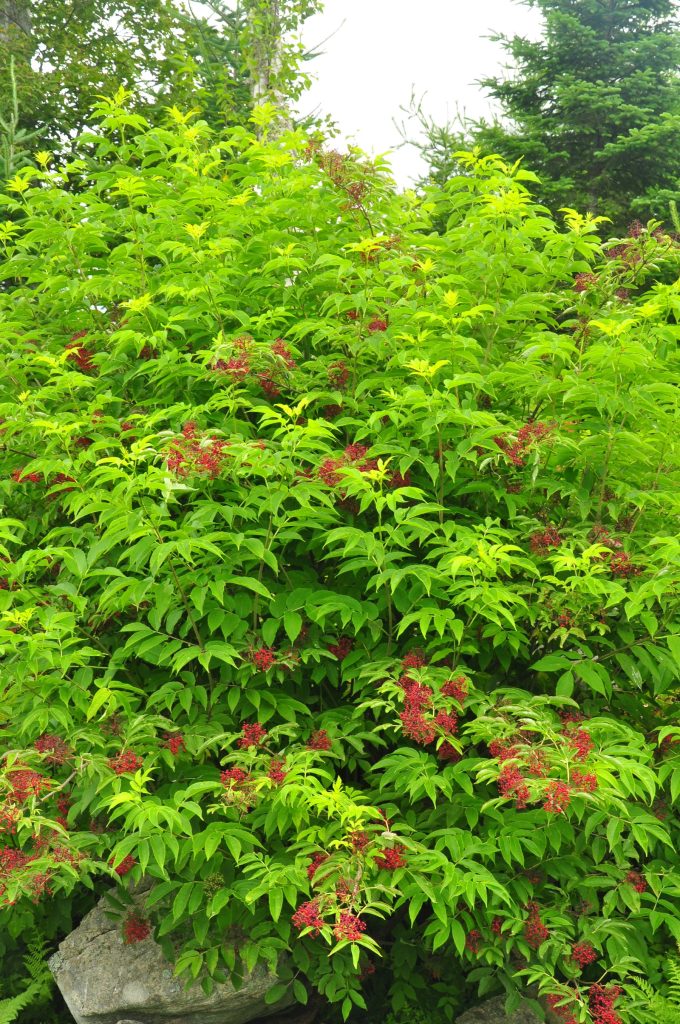
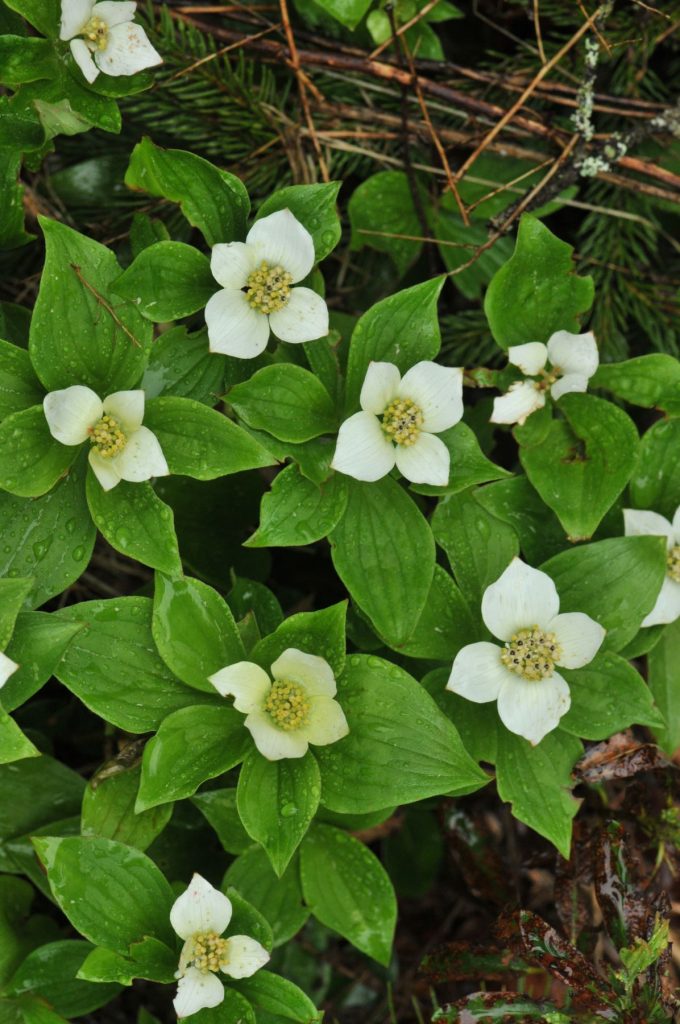
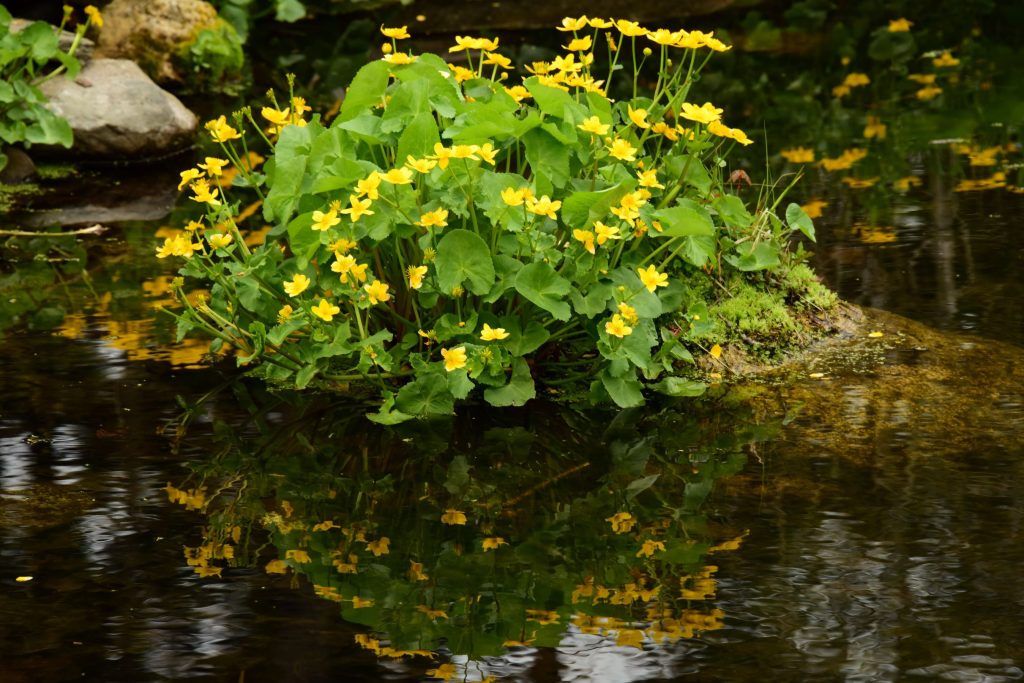
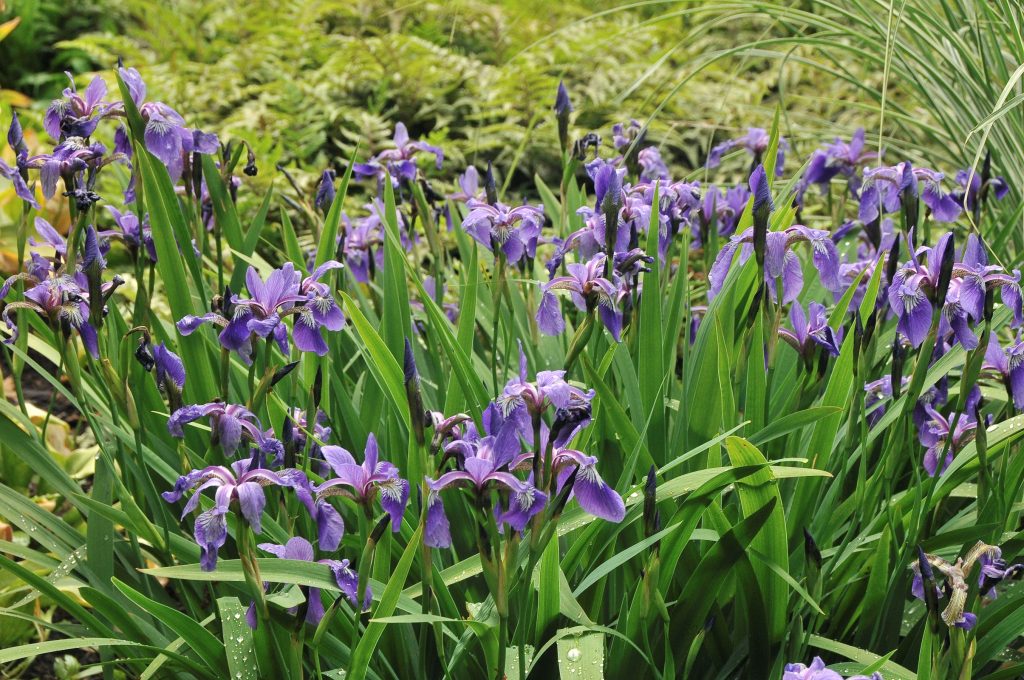
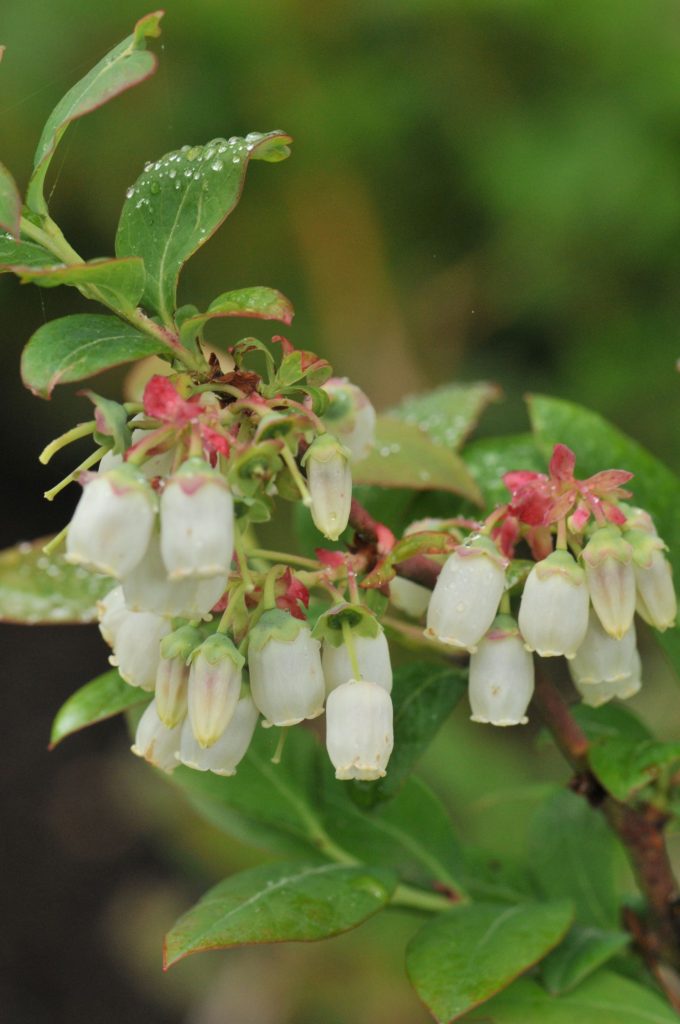
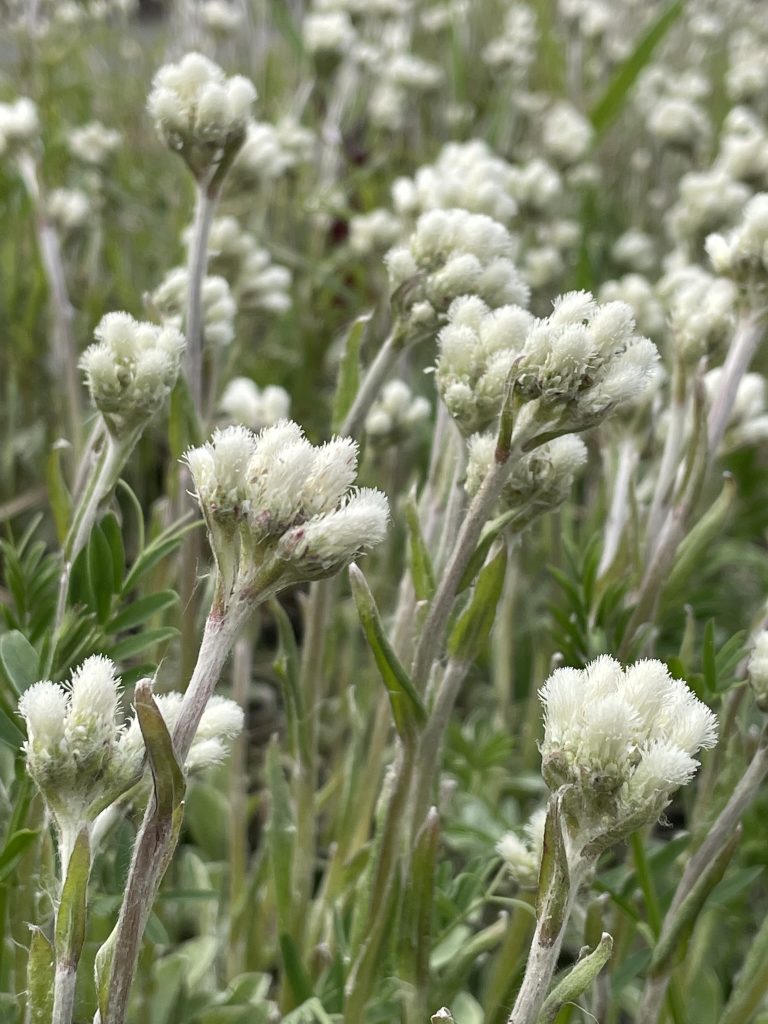
Including native flowering plants, shrubs, and trees in your gardens and yard is a great way to enjoy beautiful blooms while supporting your local pollinator populations. Extra tip: hold off on mowing those dandelions and lawn blooms for the bees and other pollinators!
For more information, check out the University of Maine Cooperative Extension’s Pollinator-Friendly Garden Certification, available to both organizations and private homeowners. Here at the Gardens, the Haney Hillside Garden is certified as a Pollinator-Friendly Garden. (You can also learn more through perusing our class offerings, like this backyard pollinator investigation class.)
